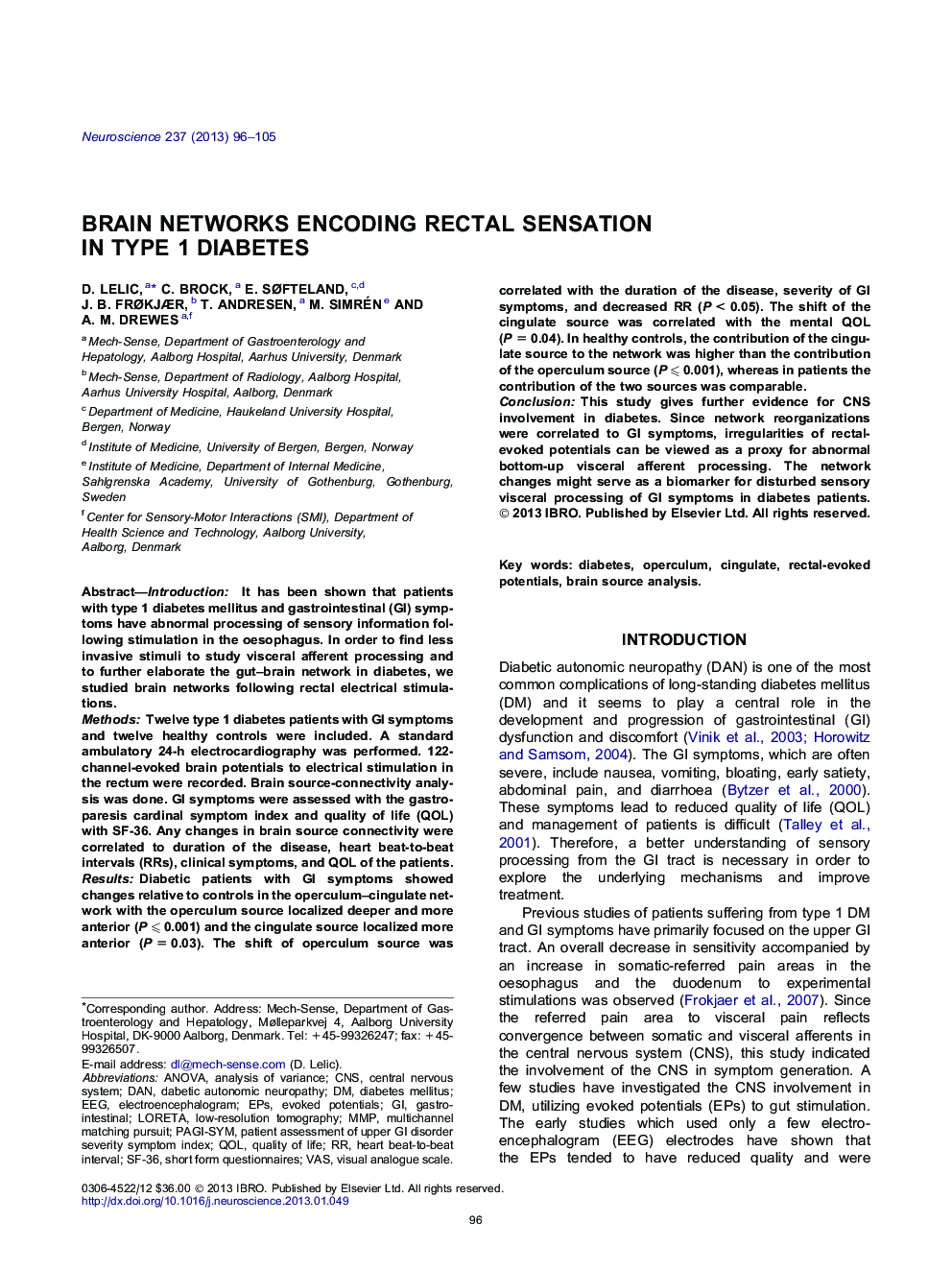| Article ID | Journal | Published Year | Pages | File Type |
|---|---|---|---|---|
| 6275216 | Neuroscience | 2013 | 10 Pages |
IntroductionIt has been shown that patients with type 1 diabetes mellitus and gastrointestinal (GI) symptoms have abnormal processing of sensory information following stimulation in the oesophagus. In order to find less invasive stimuli to study visceral afferent processing and to further elaborate the gut-brain network in diabetes, we studied brain networks following rectal electrical stimulations.MethodsTwelve type 1 diabetes patients with GI symptoms and twelve healthy controls were included. A standard ambulatory 24-h electrocardiography was performed. 122-channel-evoked brain potentials to electrical stimulation in the rectum were recorded. Brain source-connectivity analysis was done. GI symptoms were assessed with the gastroparesis cardinal symptom index and quality of life (QOL) with SF-36. Any changes in brain source connectivity were correlated to duration of the disease, heart beat-to-beat intervals (RRs), clinical symptoms, and QOL of the patients.ResultsDiabetic patients with GI symptoms showed changes relative to controls in the operculum-cingulate network with the operculum source localized deeper and more anterior (P ⩽ 0.001) and the cingulate source localized more anterior (P = 0.03). The shift of operculum source was correlated with the duration of the disease, severity of GI symptoms, and decreased RR (P < 0.05). The shift of the cingulate source was correlated with the mental QOL (P = 0.04). In healthy controls, the contribution of the cingulate source to the network was higher than the contribution of the operculum source (P ⩽ 0.001), whereas in patients the contribution of the two sources was comparable.ConclusionThis study gives further evidence for CNS involvement in diabetes. Since network reorganizations were correlated to GI symptoms, irregularities of rectal-evoked potentials can be viewed as a proxy for abnormal bottom-up visceral afferent processing. The network changes might serve as a biomarker for disturbed sensory visceral processing of GI symptoms in diabetes patients.
⺠Evidence of central nervous system (CNS) involvement in diabetes mellitus. ⺠Reorganization in cingulate-operculum network due to rectal stimulation was seen. ⺠The changes in cingulate-operculum network correlated with clinical symptoms. ⺠Better understanding of central mechanisms underlying the clinical symptoms.
